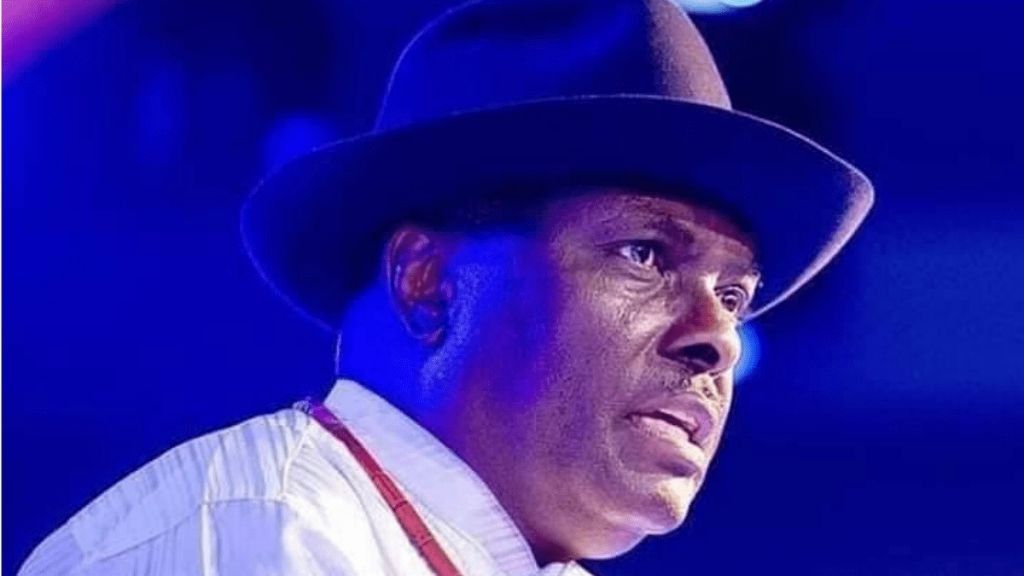ON AUGUST 29,2020
By James Onanefe Ibori
Let me begin by paying tribute to my predecessors in office who piloted the affairs of the state before the Peoples Democracy Party (PDP)administration was inaugurated on May 29, 1999.
From Air Commodore Luke Chijiuba Ochulor (rtd) who was the pioneer Administrator on creation in 1991 to the first elected Governor, Olorogun Felix Ibru, after the demise of the civilian administration, Abdulkadir Shehu, Bassey Asuquo, Ibrahim Kefas, John Dungs and to Walter Feghabo who supervised the conduct of the election in 1999, and eventually handed over to me as Governor.
I want to say without fear of contradiction that Delta in its 29 years of existence has been a success story. It is indisputable that the state has overcome some very challenging times.
The Warri crisis was my administration’s first challenge. At the inauguration of the PDP administration on May 1999, Warri and its environs were boiling. There was a full-blown attack on Escravos on May 30, which spilled over to the surrounding villages and eventually reached the Warri metropolis.
The level of destruction was such that it shocked the entire country and dampened the joy of the transition to democracy.
Its genesis can be traced to 1997 when the Federal Government of the late Gen Sani Abacha created a number of Local Government Areas including Warri South-West LGA, with headquarters in Ogbe-Ijoh, – an Ijaw town between Aladja and Warri Metropolis.
With the relocation of the headquarters of this LGA, from Ogbe-Ijohto Ogidigben, an Itsekiri town, on the Atlantic coast, riots followed and hundreds of people died. Six Shell Nigeria (SPDC) installations were taken over by protesting Ijaw youths, leading to a drop in oil production.
As head of the PDP administration at the time, I knew I had to act swiftly to stem the destruction of life and property. I then summoned a meeting of the major ethnic groups in Warri at the Government House, Asaba.
I recall vividly that the meeting stalemated, as the leaders disagreed on almost every issue. I then directed that the leaders of the delegations be taken to a room in one of the VIP Guest Houses and left there until they reached an agreement.
One of the leaders said to me, “Governor, we will not speak to each other even if we stay there for days”. In response, I then said that was exactly my objective.
On reflection today, our modest efforts have been blessed with some level of peace and understanding. As if the ethnic discord was not enough, Asaba’s position as the state capital threw up a different challenge of its own.
During my campaign to be Governor of the state, it was clear to me that some leaders from the Delta South and Central Senatorial Districts were deeply unhappy with Asaba as the capital. Conversely, leaders from Delta North Senatorial District were very emphatic on the status of Asaba as state capital, and they impressed on me to respect it if I became Governor. I assured them that I would always sleep in Asaba as long as duty did not take me out of the capital. This was my way of committing to the status of Asaba as capital.
Now, I look back with pride. Asaba is a capital city that everyone can be proud of. The PDP administration also set out to avoid the mistake of other states where only the capital was developed.
So we made sure that Delta did not become a one city state. Apart from Asaba and Warri, we identified another tier of development to include Agbor, Ughelli, Sapele, Oleh, Oghara, Abraka, Ogwashi-Uku, Burutu and Ozoro.
My prayer is for this dream to endure. Deltans will benefit from a multiplicity of urban centres with well-developed infrastructures. On the political level, I agonized over how to banish the feeling of second class citizenship of some sections of the state.
Many, who felt left out in the political arrangement, especially, the Ijaws of Warri, were brought into government at the local and state levels.
We held tenaciously to the PDP mantra of equity and justice. And this gave birth to the principle of power rotation.
The result is that for the first time in Nigeria’s history, a minority ethnic group, the Itsekiri, produced the governor of the state.
Most of all, I am pleased to note that today, all three Senatorial Zones have produced the governor of the state.
In 2007 the baton of leadership went to Dr. Emmanuel Uduaghan, an Itsekiri from Delta South Senatorial District and from him to Dr. Ifeanyi Okowa, an Owa man from Delta North.
I thank God for their lives and their commitment to Delta State. And to all those who will come after them, I wish fair weather, smooth sailing, but most of all, I wish them inspired leadership as they pilot this most strategic state in Nigeria to greater heights.
The fourth issue that engaged our attention was true federalism and Resource Control. I embraced it for obvious reasons. We won some battles; more will surely come for the journey has just begun. Some of us are paying the price today for our perceived audacity.
Some other comrades in the course of the struggle have made the supreme sacrifice. May we never forget them. On a personal note, my greatest regret is that I’m not there with you to savour this special moment.
However, I must put on record on this historic day, my gratitude to the people of Delta State for the opportunity given me to serve as Governor from 1999 t0 2007.
And it is to the people that I have reserved my last and greatest tribute. I also say to them that the journey has not been without its challenges, but we have made much progress.
Congratulations on this your well-deserved celebration. I wish you and our dear state peace, unity, and prosperity in the years ahead.

Recent Comments